U.S. Ambassador Virginia Palmer presents credentials to Prez. Akufo-Addo
- Posted on
- Comment
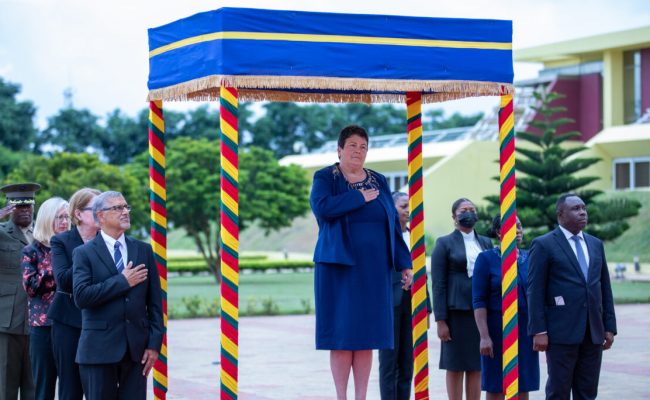
U.S. Ambassador to Ghana, Virginia Palmer presented her credentials to President Nana Addo Dankwa Akufo-Addo June 16, 2022 at Jubilee House.
Speaking during the ceremony at Jubilee House, Ambassador Palmer thanked President Akufo-Addo and the Ghanaian people for the warm welcome she has received. She also highlighted the strong, positive, and long-term friendship between the United States and Ghana based on shared democratic values, commitments to regional security, and mutual prosperity.
“I’m honored to be here as President’s Biden’s representative in Ghana. Over the next three years, I look forward to seeing as much of this beautiful country as possible and meeting Ghanaians from all walks of life. Today the U.S.-Ghana partnership is stronger than ever, founded on these historic ties and our shared democratic values and strengthened by our vibrant bilateral trade and investment and strong security cooperation,” said Ambassador Palmer in her statement.
Ambassador Palmer previously served as the U.S. Ambassador to Malawi, Deputy Chief of Mission and Chargé d’Affaires at the U.S. Embassy in South Africa, Deputy Chief of Mission and Chargé d’Affaires at the U.S. Embassy in Vietnam, the Department of State’s Deputy Coordinator for Counterterrorism and, most recently, as Acting Assistant Secretary for Energy Resources at the Department of State.
Ambassador Palmer obtained her Master’s and did doctoral studies at the University of Virginia. She received a BSFS from Georgetown University and also attended Washington University in St. Louis. She speaks Mandarin. She and her husband, retired Foreign Service Officer Ismail Asmal, have two adult daughters.
Additional photos of the ceremony
Ambassador Palmer’s welcome video
Ambassador Virginia Palmer
Statement – Presentation of Credentials to President Nana Addo Dankwa Akufo-Addo
June 16, 2022 Jubilee HouseYour Excellency, President Nana Addo Dankwa Akufo-Addo, I’m honored to be here as President Biden’s representative in Ghana. Thank you for the welcome you have given me and my husband Ismail. Over the next three years, I look forward to seeing as much of this beautiful country as possible and meeting Ghanaians from all walks of life.
I’m proud to represent the United States in Ghana. Ghana is a true leader in Africa and far beyond. Secretary Blinken said in November that “we can’t achieve our goals around the world – whether that’s ending the COVID-19 pandemic, building a strong and inclusive global economy, combating the climate crisis, or revitalizing democracy and defending human rights – without the leadership of African governments, institutions, and citizens.” We remain grateful for Ghana’s leadership in all these areas and its efforts to promote regional and global peace and security, health and prosperity through its significant contributions to global peacekeeping and leadership in the Economic Community of West African States, the African Union, and the United Nations Security Council.
I also honor what Ghana has meant historically to the United States and at its independence in 1957, when it was a beacon not just for other African countries seeking freedom from colonial rule but also for American civil rights activists seeking justice and equal rights in the United States.
Today the U.S.-Ghana partnership is stronger than ever, founded on these historic ties and our shared democratic values and strengthened by our vibrant bilateral trade and investment and strong security cooperation.
Mr. President, during my tenure in Ghana, I will give my all to supporting Ghana’s work to achieve inclusive and sustainable economic growth, equitable health outcomes, accountable governance, human rights for all, and peace and security for Ghana and its neighbors.
Today, I’d like to briefly highlight our mutual successes and my hopes for the coming months and years:
The pandemic colored much of the past two years but has also brought us closer as friends and partners. COVID-19 highlighted how the infrastructure and the relationships we’ve built over decades of partnership helped Ghana react quickly and effectively to the pandemic. The U.S. government provided over $54 million in support for Ghana’s COVID-19 response and more than 12 million vaccine doses. We’ll continue to work with the Ghana Health Service to increase vaccination rates.
We’ve seen two-way trade between the United States and Ghana grow to $2.7 billion in 2021. Even during the pandemic, American companies like Twitter, Orrin Pest Control, Pizza Hut, Domino’s Pizza, and Kosmos Energy were opening or expanding in Ghana. U.S. businesses bring world-class innovation, operate with transparency, transfer knowledge, respect local labor laws, and create jobs. Last year, the Department of State recognized Zipline with the Secretary’s Award for Corporate Excellence for its innovative work to deliver perishable medical supplies, including COVID-19 and other vaccines, via its fleet of fixed-wing drones in Ghana. Since opening in Ghana in 2019, Zipline has expanded to six distribution centers in remote areas of the country, making Ghana home to the world’s largest fleet of medical-delivery drones. Your work to ensure a favorable and predictable business climate free from the scourge of corruption will bring even more American investment and trade to Ghana. Indeed, the U.S.-Ghana Business Forum is going on as I present my credentials and our number two U.S. commercial official, Deputy Secretary of Commerce Don Graves, is here with a delegation from the U.S. Chamber of Commerce – a clear sign of the U.S. government and U.S. private sector’s commitment to growing the trade and investment relationship. His visit follows on your meeting at the White House with Vice President Harris and Secretary Blinken’s meeting with His Excellency Vice President Bawumia in February.
With the Secretariat of the African Continental Free Trade Agreement based in Accra, Ghana is in position to lead and benefit from intra-Africa trade and the United States stands ready to support the critical economic integration the AfCFTA aims to foster. The African Growth and Opportunity Act, which allows almost two thousand Ghanaian products duty-free entry into the U.S. market, is another tool to foster Ghana’s economic growth.
Earlier this month, we marked the completion of Ghana’s second Millennium Challenge Corporation Compact, a $316 million grant to build new power infrastructure, including the Pokuase and Kasoa Bulk Supply Points and Ellen Moran Primary Substation; energy efficiency programs; and wider opportunities for women in the power sector. I’ll work with you to try to secure a subsequent Compact for Ghana, Mr. President. The MCC Board of Directors sets a high bar when deciding which countries to select for a compact. Ghana’s MCC scorecard is strong, but we’ll need to demonstrate that power sector reforms have been completed and that the infrastructure of the MCC Ghana Power Compact is sustained and continues to bring reliable electricity to Ghanaian households and businesses.
Inclusive and sustainable economic growth depends also on equitable health outcomes for Ghana’s population. That’s why we support Ghana’s HIV/AIDS response through PEPFAR, the President’s Emergency Plan for AIDS Relief, as well as the U.S. President’s Malaria Initiative, maternal and child health, and nutrition programs. Our recently launched $45 million project to improve water, sanitation, and hygiene services in northern Ghana will enable community development and allow children to go to school instead of walking miles to find water each day.
We’ve also invested in programs for women by helping expand the shea industry in Ghana and neighboring countries, increasing the incomes of hundreds of thousands of rural women. We support women-owned businesses through the Academy for Women Entrepreneurs because we know that when women succeed, their families thrive, their communities develop, and their nations flourish. We share your concern for youth, Ghana’s future, and support a growing number of programs for young professionals to build civil society capacity and promote good governance and accountability.
We applaud Ghana’s leadership in providing a strong example of democracy, not only in the region, but also across the world. The U.S. government continues to be a steady partner of Ghana to ensure this hard-won reputation is maintained. We will work with you to uphold accountable governance and show how democracy can deliver what citizens want, quickly and effectively.
We will also continue our close partnership with the Ghana Armed Forces through training, exercises, and technical support. We will work with our Ghanaian partners to improve cybersecurity, maritime, and border security; combat transnational organized crime, trafficking in persons and narcotics; and build capacity within Ghana’s law enforcement and justice sector.
Finally, one great and very tangible symbol of our partnership is that Ghana was the first country to welcome U.S. Peace Corps Volunteers. Peace Corps Volunteers are our real Ambassadors, learning about Ghana and sharing their knowledge with your children and communities. I’m delighted that after a pandemic-induced hiatus, Peace Corps Volunteers will return to Ghana this month!
When we look back to this day, I trust we will say that the relationship is stronger than ever and that together the United States of America and the Republic of Ghana have each benefited from our friendship, trade, and exchange.
Source: US Embassy
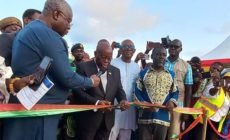
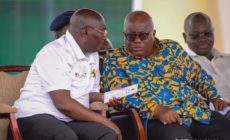
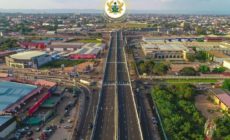
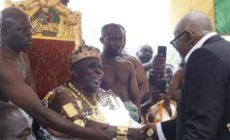






 (Selorm) |
(Selorm) |  (Nana Kwesi)
(Nana Kwesi)